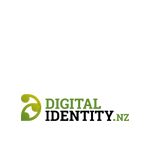Reliance and trust are essential in the world of digital identity. It is fundamental when people give their identity information to those that receive it, and it also extends to the relationship between different organisations, technology and service providers who play a part.
Reliance between organisations has often been managed via contracts and agreements, where roles and responsibilities are clearly articulated, along with price and consequences when something goes wrong. The emergence of a customer-centric digital identity ecosystem challenges some of the traditional thinking and unlocks opportunity around reliance between organisations and service providers – such as when a customer is presenting a credential (or proof of a credential) they hold themselves (for instance in a trusted smartphone wallet) where there may be no direct contractual relationship between organisations.
A customer-centric perspective also raises new questions in relation to our regulatory framework and how it is utilised. An example of this is the laws and regulations that are designed to prevent money laundering and the financing of terrorism (typically referred to as AML/CFT). Under the AML/CFT framework an organisation that provides financial services is known as a ‘Reporting Entity’, and as part of broader customer due diligence obligations is ultimately responsible for the proper validation of a customer’s identity. Reliance on other parties performing customer due diligence is envisioned in the legislative framework, however there has been limited application in practice.
To address some of these challenges, a number of Digital Identity NZ members have commissioned a piece of work to address the question, ‘can an individual re-use identity verification obtained through an AML/CFT process and still meet the regulatory requirements of all Reporting Entities involved?’ Proof of identity is a key component of AML/CFT, and while a number of organisations have developed excellent solutions for bringing new customers on board, there is massive potential to further that collaboration and reliance, including when a customer holds that proof themselves. Thanks to the backing of the DIA team, we have the support and active engagement of all of the Government agencies involved in the supervision of AML/CFT. We will be completing the initial phase of our work in the coming weeks, and will be publishing the results of that analysis for the benefit of the community in New Zealand. We are hoping that this will provide a springboard to greater levels of collaboration and reliance, providing tangible productivity benefits to customers and reporting entities alike.
Remember to register for our webinar tomorrow afternoon – this edition features the Brenda Smith from the DIA and David Morrison from InternetNZ. Please also join us on 10 March for our local showcase in Auckland. We still have spaces available for local solution providers to talk with us about how they are implementing their technology, so if you are interested in being part of the event, or know someone you feel should be, please get in touch.
And in breaking news, InternetNZ and DINZ will be hosting a meetup event with the W3C Technical Architecture Group (TAG) during their visit to New Zealand in March. This will be held at 5:30pm on Wednesday 4 March at the InternetNZ office in Wellington. Register here.
Ngā Mihi,
Andrew Weaver
Executive Director
News and Report
Security technology runs the risk of stepping over the boundary into violations of privacy, as is the case with Jumpshop, a subsidiary of Czech-based cybersecurity specialist Avast, that has been shut down after it was revealed that it was harvesting and selling on user data.
After initially considering a ban on the use of facial recognition in public areas for up to five years, the EU has revised its position and is leaving any decision to member states. The ban was considered after European Commission research found that facial recognition is prone to inaccuracy, can be used to breach privacy laws, and can facilitate identity fraud.
Consumer NZ has commented on a lack of transparency in New Zealand loyalty schemes. This reinforces the importance of transparency and consent when our identity and information is shared.
Visa’s ‘She’s next’ programme is designed to bring some gender balance to the world of start-ups and venture capital. The latest award recipient is Eon, who have developed digital identity-based retail fashion tracking, designed to stimulate the circular economy.
Visa have found that Kiwis are ready to ditch passwords in favour of more natural forms of authentication. And to quote Stuff, ‘Visa’s report also suggested New Zealanders are technologically more advanced than Australians’. Perhaps a challenge is in order?
New InternetNZ research shows that 93% of New Zealanders are concerned about the security of their personal data, but despite the concern, Kiwis aren’t taking enough actions to improve their online security.
After initially considering a ban on the use of facial recognition in public areas for up to five years, the EU has revised its position and is leaving any decision to member states. The ban was considered after European Commission research found that facial recognition is prone to inaccuracy, can be used to breach privacy laws, and can facilitate identity fraud.
PYMNTS interviewed Kount on the rise of synthetic identities in fraud, and explored how digital identity can be part of the solution
Minimisation of the capture and flow of sensitive identity information is one of fundamental principles of a well-functioning digital identity ecosystem. Unfortunately breaches such as this one serve as compelling evidence that change is required.
Poor system and process design can lead to some rather strange outcomes, such as this example where a 101 year old man was told that his parents must confirm his ID.
Upcoming Events
Register now for our February webinar happening tomorrow, 20 February. Hear David Morrison’s predictions for the internet in 2020.
InternetNZ and DINZ are delighted to be hosting a meetup with the W3C Technical Architecture group in Wellington starting at 5:30pm on Wednesday 4 March.
Secure yourself an early bird ticket price for Payments NZ 2020 conference The Point, 23-24 June in Auckland.
Following The Point conference we are running a joint workshop with FinTechNZ on 25 June in Auckland which will take an in-depth look at what’s next when it comes to the use of digital identity technologies in financial services. More information to come.
Hear from Digital Identity NZ members at the Digital Identity and Access Morning Briefing NZ 2020 on Wednesday 26 February in Auckland.
Eight local companies will showcase the real world application of their digital identity solutions with quick fire presentations at our DINZ Local Showcase in Auckland on Tuesday 10 March.
Save the date for our joint event with NZHIT in Wellington on Wednesday 22 July.
Our monthly webinars happen at 1pm on the third Thursday of the month – schedule them in your calendar now.
Tech Alliance Events and Information
Mark 18 to 24 May in your diary for Techweek2020, New Zealand’s biggest festival of tech. Event submissions are open now.
Attend Future Government 2020 on 25 March in Wellington for a discussion on serving New Zealand through a digital public service.
Check out the Tech Alliance Connect events which have been scheduled for the first quarter of the year. More are being added all the time.
We love the AI Forum. Read their latest newsletter to find out why. You can stay up to date with news from across the TechAlliance by signing up for newsletters of the communities that interest you.
Entries for the NZ Hi-Tech Awards close on 2 March. The winners will be announced at the Gala Dinner on 22 May in Wellington.
MedCan 2020, New Zealand’s first medicinal cannabis summit, is less than a month away. Register now so you don’t miss out
Contribute, Connect and Join
If you would like to know more about joining Digital Identity NZ, the benefits and membership categories check out our joining page.
We’re keen to hear what our members have been up to. Please contact us to share your news.








